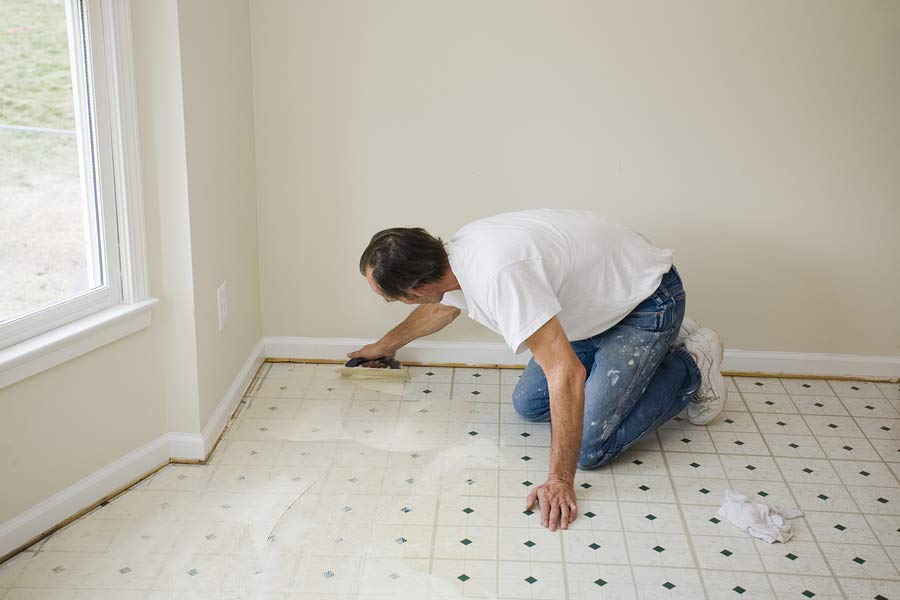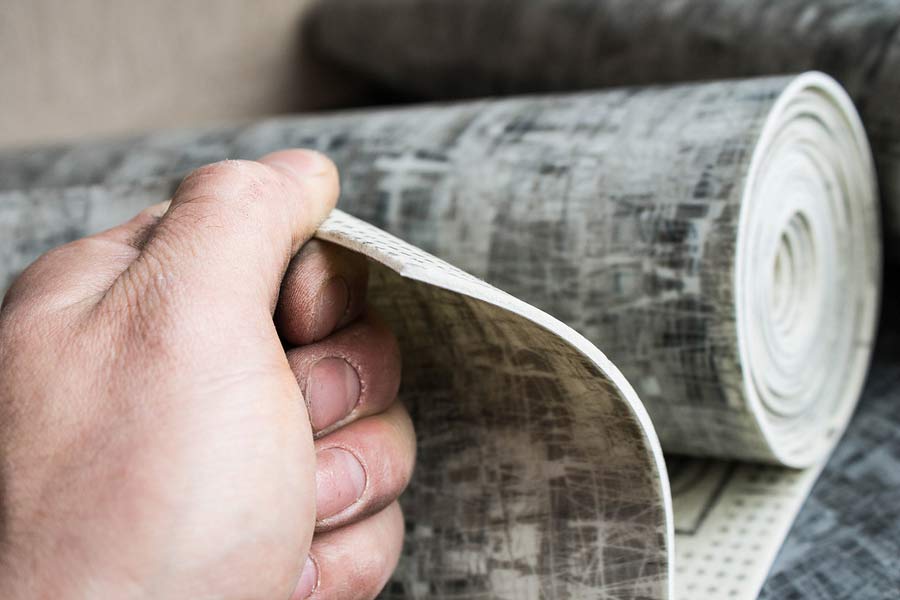The truth about asbestos vinyl flooring
Vinyl flooring has been a popular floor covering in many Kiwi homes for generations. However, the risk can outweigh the durability and appearance if asbestos is involved. It's important to understand the potential risks and hazards involved if you're considering ripping up old vinyl tiles or vinyl sheeting.
Asbestos in New Zealand Houses
In New Zealand most houses built before 1975 have a high probability of containing asbestos building products and materials as well as asbestos insulation products in their construction. Houses built up until the late 1990s should be considered as possibly containing asbestos materials or products.
Asbestos Vinyl flooring
Asbestos vinyl flooring was a durable and economical material, that offered many aesthetic options to suit a homeowner’s taste.
Asbestos was used in vinyl wallpaper from the 1920s, and in the vinyl floor tiles and sheet flooring that rose to prominence in the 1950s. Stain-proof, fireproof, stylish and affordable, vinyl products strengthened through the inclusion asbestos in their manufacture were a very popular choice in many New Zealand houses.
Unfortunately, vinyl tiles and sheet flooring that contain asbestos, pose a potential exposure risk. If the material is in good condition, it normally does not pose a threat, because the asbestos is enclosed in vinyl, preventing the fibres from escaping. The vinyl acts as a binder that holds the asbestos fibres within a solid matrix.
Asbestos containing materials fall into two broad categories: friable and non-friable. Friable asbestos materials can easily be reduced to powder when disturbed by hand when they are dry. These materials are more likely to release measurable levels of asbestos into the airborne environment when disturbed, and generally pose a greater risk to health.
'Non-friable', or bonded asbestos is used to refer to asbestos-containing materials in which the asbestos is firmly bound in the matrix of the material. These materials are unlikely to release measurable levels of asbestos fibre into the airborne environment if they are left undisturbed. Therefore, they generally pose a lower risk to health.
In most cases, vinyl tiles are considered non-friable. Floor tiles can become friable if they are mishandled, damaged or are in a badly worn or weathered condition.
Asbestos vinyl sheet flooring poses a significantly greater asbestos exposure risk than floor tiles or wallpaper. Manufacturers often made this type of flooring with a friable asbestos backing, which means asbestos fibres are easily released into the air if the sheet flooring is disturbed or damaged. The mastics or adhesives used to install vinyl products also often contained asbestos, though asbestos fibres in adhesives are less likely to become airborne.
It is worth noting that floors may have undergone multiple renovations over the years. The common practice being to simply lay new flooring on top of existing flooring. Asbestos containing products can therefore be found in some or all of these multiple layers.
What you NEED to know BEFORE removing asbestos vinyl flooring
The presence of asbestos does not necessarily pose immediate danger. The danger arises when homeowners undertake renovations and asbestos containing products are damaged, disturbed or sanded. Removing vinyl flooring by sanding or grinding would potentially create a higher risk of asbestos exposure.
New regulations in New Zealand now specify that homeowners must get an asbestos test before they undertake any renovations. These new regulations also specify that workplaces and businesses must have an asbestos management plan. Business owners also need to be aware of the dangers and of their responsibilities. Businesses need to have an asbestos policy.
Vinyl floorings and wallpapers that contain asbestos ,cannot be identified by simply looking at them. Vinyl flooring has to be assessed in the context of when it was made and installed and it has to be tested by professionals. As soon as you start renovation plans, you become a PCBU (Person Conducting Business or Undertaking) and you are therefore responsible for anyone coming on to your property. It is your responsibility to ensure that there are no asbestos risks to anyone.
It is therefore important to leave asbestos testing and removal to the experts and not attempt any DIY yourself. Chemcare specialises in asbestos testing, asbestos removal and asbestos management plans. Chemcare has supervisors specialising in asbestos removal, properly trained to dispose of any hazardous material. We will provide you the most stress free service.
What to do if you suspect Asbestos Vinyl Flooring
It is very important not to remove or test the vinyl flooring yourself. If done incorrectly, taking samples yourself can be hazardous. Let Chemcare’s professional team expertly and safely take samples of the vinyl material. We will submit the sample to an accredited laboratory to be analysed as this is the only way to determine if a vinyl material contains asbestos.
We make the process as painless and transparent as possible.
We are proud of the service we offer and confident that we will meet your every need and satisfy your concerns about you and your family’s safety. Contact Chemcare now for asbestos testing and removal on 0800 800 646





